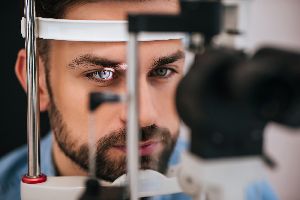
Glaucoma is the second leading cause of blindness in the world. While optometrists have diagnosed 3 million cases in the U.S., there is a great likelihood there are many more, as this disease may not present symptoms until eyesight is lost. This incurable condition results from damage to the optic nerve, which is responsible for communicating with the brain to decipher images. Here is a guide to four ways you may be at risk of glaucoma.
How to Know if You're at Risk for Glaucoma
1. Family History and Genetic Background
Genetic studies have found 50% of glaucoma cases are related to genetics. Siblings with this eye condition have a 10 times higher risk of developing it themselves. People of Hispanic, Asian, African, or Caribbean descent not only have a higher risk, but they can also develop glaucoma at a younger age. Unfortunately, without regular eye exams, many people would not know they have glaucoma until they cannot exercise prevention techniques.
2. Changes of Condition

Inflammation in the eye is common after eye surgery or blunt force trauma. When the eye cannot drain correctly or the inflammation becomes chronic, like in rheumatoid arthritis, the fluid buildup puts pressure on the optic nerve. Any condition or accident that impairs the function of the drainage system between the iris and cornea can increase the risk of developing glaucoma.
3. Elevated Eye Pressure
An internal eye pressure that is higher than normal is called ocular hypertension. The healthy range of intraocular eye pressure is between 10 and 21 mm. Typically, patients diagnosed with glaucoma have a pressure measurement that exceeds 21 mm. When an optometrist can detect higher pressure levels, they can begin treatments, like beta blockers, to reduce fluid production in the eye.
4. Conditions Affect Blood Flow
Conditions like diabetes, migraines, low blood pressure, and hypertension affect blood flow within the body and can cause nerve damage. When ocular blood flow is restricted, blood vessels surrounding the eye cannot supply adequate blood to the optic nerve head, causing it to atrophy and deteriorate.
Your eyesight depends on quality vision care. For this reason, residents of Lexington, KY, choose the skilled optometrists of Abel, Klecker & Robbins. For more than 60 years, this locally owned and operated father-daughter team has helped patients treat and improve their eyesight. Whether you need a routine eye exam, prescription lenses, or eye care treatments, Dr. Steven Klecker and Dr. Kathryn Robbins will create a detailed and custom eye care plan to help you achieve optimum results. To see a full list of services, visit them online or call (859) 269-6921.
About the Business
Have a question? Ask the experts!
Send your question

